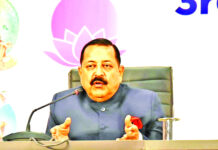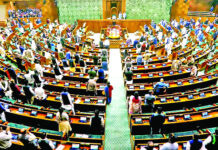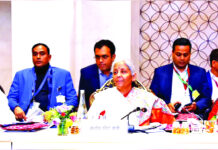The constitutional validity of contentious Article 370 has been put to test again! Legal experts believe that the Article is temporary in nature, and avenues have not been explored yet to change its status via Amendment Act to the Constitution. Therefore, it is contestable on the floor of the Parliament and exposed to the scrutiny of law. Constitution expert and former Secretary General of the Lok Sabha Subhash Kashyap, said this Article is not barred from a debate on the floor of the Parliament. “A Member of Parliament can give notice on motion and contest its validity. Amendments to the Constitution are necessary to keep it contemporary and relevant,” Kashyap added refrained from commenting on the petition filed before the Supreme Court. The petition filed by BJP leader and advocate Ashwani Upadhyay has questioned the constitutional validity of the provision that grants special status to Jammu and Kashmir. “The Article 370 under the Constitution has been ascribed as a temporary provision, and not a special provision. There are provisions in the Constitution – temporary, transitional and special. Temporary is the weakest. The question is – how can be it ended and when shall be ended.” Kashyap said. The hearing on a plea challenging the constitutional validity of Article 370 is pending in the Supreme Court since the beginning of this year, although the matter came up for early hearing on July 10, but it is yet to list for a detailed hearing. “The temporary status of Article 370 has been there for more than 50 years. The Supreme Court has held that Constitution is Supreme and India is a sovereign Country, not the state of J&K. So, the Supreme Court can declare Article 370 manifestly arbitrary,” said Upadhyay. On February 18 this year as well, Upadhyay had mentioned the PIL for urgent listing for the hearing. He had filed it in September last year. He contended it was not introduced as a permanent measure at the time of the framing of the Constitution, and Article 370(3) lapsed with the dissolution of the Jammu and Kashmir Constituent Assembly on January 26, 1957. During an earlier hearing, the Jammu and Kashmir counsel had contended the issue can be deferred till an elected government was in place. The Chief Justice had rejected this plea stating that the case cannot remain pending. The state’s counsel had sought adjournments citing polls, and apparently claimed that ground situation was very sensitive during the PDP-BJP government is in power. On July 10, the apex court said it would consider the plea seeking urgent hearing on a PIL filed by BJP leader and lawyer Ashwini Upadhyay, contesting the Article 370, which grants special status to Jammu and Kashmir and limits Parliament’s power to make laws for the state. “File a memo, we will see”, said the bench headed by Chief Justice Ranjan Gogoi, after taking note of the submissions by the BJP leader. “Article 370 was introduced as a temporary measure and it is about time it is removed. There is an option to challenge its validity in courts. But there are practical problems in this. There are a number of presidential orders issued under Article 370 extending a number of statutes and other provisions applicable in other parts of the country to J & K. If 370 go without any alternative, it will create practical difficulties”, said Kumar Mihir, Advocate on Record in Supreme Court. In his plea, Upadhyay has contended that the Article empowered the state legislature laws which cannot be challenged, especially on the grounds of violation of the right to equality of people hailing from different parts of the country or any other right under the Constitution. The plea also seeks a declaration from the top court that the formulation of separate Constitution the state was “arbitrary” and “unconstitutional” on various grounds, including that it was against the “supremacy of the Constitution of India and contrary to dictum of ‘One Nation, One Constitution, One National Anthem and One National Flag.” The plea contends that the Constitution of Jammu and Kashmir is invalid as it is yet to get the assent of the President, which is mandatory according to the Constitution.

Dogra Herald is the media of J & K, breaking language and geographical barriers, connecting J & K to the rest of India.
0191 245 4946
info@dograherald.com
Latest articles
Priyanka Chopra pens a heartfelt message on World Refugee Day
iamjkstarr - 0
Bollywood diva, Priyanka Chopra who is the UNICEF goodwill ambassador shared a heartfelt message on World Refugee Day which is celebrated on June 20....
2G may be back in Jammu, broadband in Kashmir from Jan 15
iamjkstarr - 0
In a significant development, authorities in Jammu and Kashmir Union Territory are mulling to restore the internet services, though partially in the UT from...
Govt presents 50-day report card, says ‘walking the talk’ on promises
iamjkstarr - 0
Presenting a report card after completing 50 days in office, the Modi government on Monday said it is already “walking the talk” on the...


























